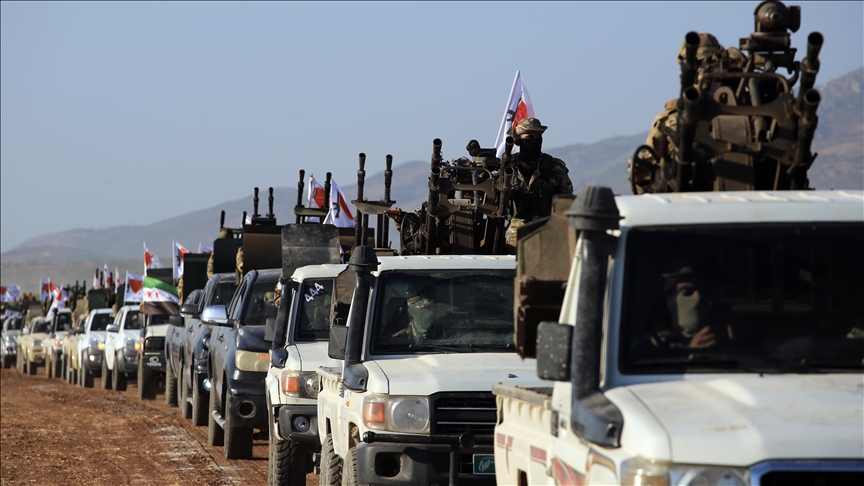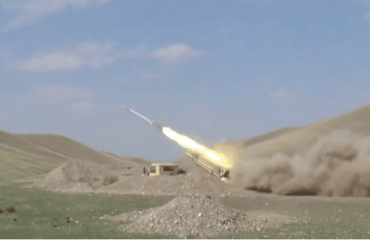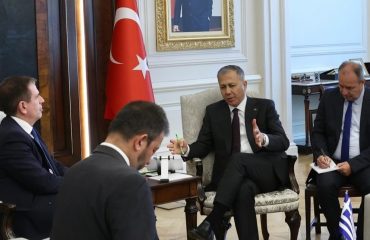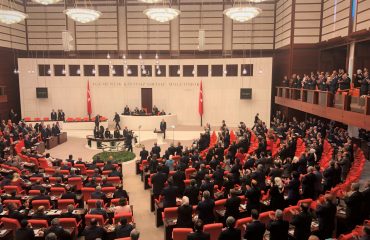

Unable to stop the advance of opposition forces, the Assad regime, shaken by coup allegations in Damascus, points to new regional balances. The photo shows forces of the Syrian National Army (former FSA) supported by Türkiye, whose ‘Freedom Dawn’ operation against PKK/YPG forces was hindered, as Assad forces withdrew and left their positions. (Photo: AA)
The Syrian civil war, ongoing for years, has reached a new dimension with the rebel advances in Aleppo and Hama and the alleged coup attempt in Damascus. The regime of Bashar al-Assad, shaken by both rebel offensives and internal strife, is increasingly under pressure. These developments are not only revealing the weakening control of the regime but also raising questions about how Türkiye will be affected by this crisis.
Rebel forces led by Hay’at Tahrir al-Sham (HTS) have achieved a significant victory in Aleppo, a city held by the regime since 2016. This achievement underscores the regime’s diminished military defense capabilities. The recapture of Aleppo represents a strategic and psychological victory for the rebels.
Hama, geographically one of Syria’s most critical regions, serves as a corridor connecting Damascus with coastal strongholds such as Latakia and Tartus. The rebels’ capture of this area threatens to disrupt the regime’s logistics, demonstrating that the rebels are not only focused on defending their territories but are also strategically weakening the regime.
Coup allegations in Damascus
Following the advances in Aleppo and Hama, clashes in Damascus revealed cracks within the regime’s internal dynamics. Fighting broke out in the Kfar Sousa district between the Republican Guard and the 4th Division, led by Maher al-Assad. These fueled rumors of a coup attempt against President Assad, combined with Assad’s declaration to respond to the attacks and launch a counteroffensive, indicate that the regime is relying heavily on Russian support to maintain its position.
There are three major reasons for the cracks within the Assad regime:
1. Economic Collapse: Years of war and sanctions have left the Syrian economy in ruins, intensifying competition for resources among regime factions.
2. Internal Rivalries: The 4th Division, by controlling smuggling networks, has gained economic independence, heightening tensions with other military groups.
3. Iranian Influence: Iran’s growing control over the regime has created unease among nationalist factions.
Bashar al-Assad has denied the coup allegations, but such rumors could undermine the regime’s credibility. If true, internal conflicts could boost the morale of rebels and unsettle the regime’s external supporters.
Turkish role: opportunities and risks
Türkiye is both the closest observer and one of the most affected actors by these developments. Ankara’s security and foreign policy objectives are directly linked to the dynamics unfolding in Syria.
Strategic objectives of Türkiye are;
1. Preventing a Kurdish Corridor: Türkiye sees blocking the formation of an autonomous Kurdish region in northern Syria as a primary goal. The advances of rebels in Aleppo and Hama could relieve pressure on Kurdish forces, increasing Ankara’s influence.
2. Supporting Rebel Groups: Türkiye has supported opposition groups, particularly in Idlib, to secure influence over Syria’s future.
3. Managing the Refugee Crisis: Hosting 3.6 million Syrian refugees, Türkiye is wary of a potential new wave of displacement due to escalating conflicts.
If rebels succeed, Türkiye could expand its influence in northern Syria and establish safe zones for refugee returns.
If Assad strengthens his position: A consolidated Assad regime might seek reconciliation with Kurdish forces, threatening Türkiye’s security interests. Additionally, the presence of Iranian-backed militias near Türkiye’s border could pose a long-term security risk.
Possible shifts in regional dynamics
The developments in Syria are not limited to local forces but are also reshaping the strategies of regional and global players.
• Moscow: Russia has intensified airstrikes in Aleppo and Hama to support the regime, but its commitments in Ukraine limit its ability to fully focus on Syria.
• Tehran: Iran sees Syria as a corridor linking it to Hezbollah in Lebanon. Rebel advances threaten this corridor, pushing Tehran to increase its support for Assad.
• Washington: The U.S. continues to support Kurdish forces while aiming to limit Iranian influence. However, direct U.S. intervention in Syria remains unlikely.
• Israel: Netanyahu’s government has escalated airstrikes on Iranian-linked targets in Syria, aiming to diminish Tehran’s influence in the region.
Kurdish aspirations and risks
The HTS offensives have shifted the dynamics in Kurdish-controlled areas. While the group’s focus on Hama has temporarily eased pressure on Kurdish regions such as Aleppo and Tal Rifaat, the Syrian Democratic Forces (SDF), having PKK/YPG as its backbone have taken advantage of the regime’s retreat to expand their control, including capturing key airfields near Deir Ezzor and Khasham.
Opportunities for the Kurds:
• Territorial Gains: The regime’s weakening has allowed the SDF to expand its territory and strengthen its autonomy.
• Temporary Relief: The shift of HTS operations away from Kurdish areas provides an opportunity for the Kurds to consolidate and regroup.
Threats to Kurdish Aspirations
• Turkish Intervention: Türkiye -supported Syria National Army (SNA-former Free Syria Army) has already started a military operation coded as “Dawn of Freedom” against the PKK/YPD advances after the Assad forces left critical positions to them. If that would not stop it, Türkiye may launch a military operation into Syria with its armed forces.
• Cycle of Persecution: Propaganda portraying Kurdish forces as pro-regime could lead to increased hostility from opposition groups, forcing the Kurds into a vicious cycle of aligning with the regime for protection and being labeled as collaborators.
New balances, new risks
The rebel advances and coup allegations are reshaping the dynamics of the Syrian conflict and regional balances. While Bashar al-Assad’s regime faces internal and external pressures, these developments present both opportunities and challenges for Türkiye.
Türkiye’s actions in this period will be critical for ensuring its border security and maintaining its influence in the region.
Supporting rebel gains and addressing regional risks must remain Ankara’s top priorities. Meanwhile, the dynamics on the battlefield, particularly Kurdish movements, could prompt Türkiye to escalate its military operations if deemed necessary.
The future of Syria will not only be shaped by domestic actors but also by the strategic decisions of regional and global powers.


